![]() n the last fifteen years, few artists have succeeded in crafting an identity like The National: a concept that seems to define the group more than their actual work, as opposed to the nature of their discography. The National began modestly enough with their self-titled debut, The National. While the album showcases much of the songwriting that would be present on the band’s later work, many of the songs are nondescript in sound, save Matt Berninger’s signature baritone and lyrics. Succeeding The National, the group’s sophomore effort Sad Songs for Dirty Lovers exists as The National’s attempt of moving away from their debut. Sad Songs for Dirty Lovers, while still adhering to the alt-country precedent set by The National, is arguably The National’s most experimental album, with unconventional song-crafting in every arena. The record is easily the most inaccessible collection of songs The National. Sad Songs for Dirty Lovers begat Cherry Tree EP, and Cherry Tree EP begat The National’s third studio album, Alligator. Alligator began the period where The National caught major attention, at east among indie crows — an oxymoron if there ever was one. The closest to a real rock record, Alligator shows The National at their most visceral, but also at their most controlled up to that point in their career. Following Alligator was the group’s most acclaimed album Boxer. The album shows The National more confident than ever, churning out honest, and comfortable sounding tracks that has since cemented The National’s sound. High Violet is a bigger departure than most will admit, but is still a progression from the sound established on Alligator and Boxer, and is considerably more aurally grandiose and expansive than anything before it. Though not necessarily bombastic, High Violet feels like an eruption of polished and hazy bitterness, and inescapable paranoia. That said, if High Violet is an eruption, Trouble Will Find Me is easily falling action as descending ash. Somehow hazier, and more distant, Trouble Will Find Me shows The National at their most reluctant and fearful, and decidedly unwilling to fill in the empty space left in the wake of High Violet. The evolution of The National is gradual, but is a visible evolution, as opposed to hopping from one idea to another, and their discography illustrates that very well.
n the last fifteen years, few artists have succeeded in crafting an identity like The National: a concept that seems to define the group more than their actual work, as opposed to the nature of their discography. The National began modestly enough with their self-titled debut, The National. While the album showcases much of the songwriting that would be present on the band’s later work, many of the songs are nondescript in sound, save Matt Berninger’s signature baritone and lyrics. Succeeding The National, the group’s sophomore effort Sad Songs for Dirty Lovers exists as The National’s attempt of moving away from their debut. Sad Songs for Dirty Lovers, while still adhering to the alt-country precedent set by The National, is arguably The National’s most experimental album, with unconventional song-crafting in every arena. The record is easily the most inaccessible collection of songs The National. Sad Songs for Dirty Lovers begat Cherry Tree EP, and Cherry Tree EP begat The National’s third studio album, Alligator. Alligator began the period where The National caught major attention, at east among indie crows — an oxymoron if there ever was one. The closest to a real rock record, Alligator shows The National at their most visceral, but also at their most controlled up to that point in their career. Following Alligator was the group’s most acclaimed album Boxer. The album shows The National more confident than ever, churning out honest, and comfortable sounding tracks that has since cemented The National’s sound. High Violet is a bigger departure than most will admit, but is still a progression from the sound established on Alligator and Boxer, and is considerably more aurally grandiose and expansive than anything before it. Though not necessarily bombastic, High Violet feels like an eruption of polished and hazy bitterness, and inescapable paranoia. That said, if High Violet is an eruption, Trouble Will Find Me is easily falling action as descending ash. Somehow hazier, and more distant, Trouble Will Find Me shows The National at their most reluctant and fearful, and decidedly unwilling to fill in the empty space left in the wake of High Violet. The evolution of The National is gradual, but is a visible evolution, as opposed to hopping from one idea to another, and their discography illustrates that very well.
Now, I would be remiss if I did not make it plain that I love The National like few other artists. They’re a group that captured my interest when I first heard Boxer and Alligator. I was sixteen years old, I had snagged them off of Mediafire, and I was subsequently intrigued and ensnared by what I was hearing. This was several months after High Violet had been released. The National had been building up hype, and I finally relented by stealing some of their music. I have since paid that back in purchasing their music (including buying Trouble Will Find Me both digitally, and on vinyl) and paying to see them live. Seldom have I been disappointed by any of their work, and even rarer still is it that I have such a connection with a band.
Yet, for all of my adoration of the Cincinnati-born quintet, it’s important to keep an objective perspective on what this group does. Musically speaking, The National seldom do anything groundbreaking. They’re dynamic enough — rocking out from time to time, and making room for softer moments. Production-wise, even the most delicate tracks The National always sound rich and thick. The jittery keys and picked strings on “Ada” are still filled out by steady drums and brass. Granted, as the group has accumulated an increasingly respectable catalog, their songs have gotten hazier and hazier. What has not changed — from the first verses of “Beautiful Head,” to the Violent Femmes wink-and-nod lyric copping that closes out “Hard to Find — is that every single track that they have ever produced has a tinge of melancholy. Even tracks like “Mr. November,” and “Murder Me Rachel” — as bright and vibrant as they might seem, Berninger and the Dessners never settle for anything short of multi-dimensional. Frequent also is the use of humor in Berninger’s lyrics. From the absurd bedlam of “Friend of Mine,” Berninger frantically inquires “Why would you listen to that man? That man’s a balloon.” On “Sorrow,” Berninger goes on to describe the eponymous concept. Sorrow may have found Berninger when he was young, and sorrow may have eventually won. Even in light of such, sorrow is also the girl inside Berninger’s cake. At their best, The National’s work is tight, and driven, but effortlessly elegant. The National is a band that never sounds sorry for itself, even if they are constantly apologizing because what they’ve done.
The vehicle and method which The National express themselves is well documented, as is the content that occupies their music. As well as the Dessners and Devendorfs hold their own, and demonstrate incredible musicianship, the defining asset of The National is, in fact, Matt Berninger, who lends the literal and proverbial voice to his band. Berninger’s full baritone is often compared to Nick Cave or Ian Curtis — yet, Berninger is not as polished and precise as Cave, nor is he as angry and erratic as Curtis. Berninger’s voice is weathered and worn, not literally, but in the assured nature in which it finds profundity in the minutia that slips through the cracks. Berninger’s observations may seem clever and nuanced, but they’re expressed with an often bitter familiarity. The most effective vocalists are seldom those who have the most technical proficiency, but are those whose personality is naked and sincere. Berninger is not always showy, but is never fake, and never sounds as though he’s going through the motions; he sounds as though he believes in his lyrics — which are filled with all kinds of insecurities, delusions, and indictments. Berninger aids The National with a maturity that is remarkably rare, and it amplifies the effectiveness of the group’s content, making his music both insightful, and endearing.
The National is so famous for existing in their own sphere of music, for fulfilling such a specific niche, and for being so singular. Most artists are lumped into genres and sub-genres, linked to a chain of preceding influences, and are defined as such, regardless of their technical contributions. Not everyone gets to avoid being labeled as any kind of derivative, and even fewer are recognized for any kind of signature style. Perhaps it’s because The National are not as concerned with their sound like so many critics and picky listeners, which is already unmatched. Yes, they’re classifiable as post punk and chamber pop. They use guitars and drums, with brass and strings in the background, and even a few programmed beats here and there. Yet, the way the Dessners assemble these arrangements, and the way Berninger complements those compositions truly is unlike anything else being produced today.
And now, a ranking of The National’s work, as well as their best songs. I am not including either EP (but Cherry Tree over Virginia.) Also, I know few people are going to agree with my assessment, and that’s too bad. Write another article, if you’re dissatisfied.
Album Rankings
6. Sad Songs for Dirty Lovers (2003)
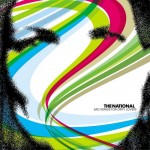 -Artists throwing what sticks to the canvas, and compiling their findings as one collection of songs, is not an uncommon phenomenon. Sometimes the result is Kid A, but sometimes the result is Danger Days: The True Lives of the Fabulous Baker Boys. Sad Songs for Dirty Lovers falls somewhere in the middle, but leaning noticeably closer to the former than the latter. Many of the ideas stick, and many of them further the image that is closer to who The National is now. Yet, enough of the album sounds so much like a whole other band, a band that is not sure of what they want, that it reflects poorly on The National. By no means is Sad Songs for Dirty Lovers a bad record, but if listeners are hesitant to revisit this album, it’s not without reason.
-Artists throwing what sticks to the canvas, and compiling their findings as one collection of songs, is not an uncommon phenomenon. Sometimes the result is Kid A, but sometimes the result is Danger Days: The True Lives of the Fabulous Baker Boys. Sad Songs for Dirty Lovers falls somewhere in the middle, but leaning noticeably closer to the former than the latter. Many of the ideas stick, and many of them further the image that is closer to who The National is now. Yet, enough of the album sounds so much like a whole other band, a band that is not sure of what they want, that it reflects poorly on The National. By no means is Sad Songs for Dirty Lovers a bad record, but if listeners are hesitant to revisit this album, it’s not without reason.
Track picks: Cardinal Song, Murder Me Rachael, Lucky You
5. The National (2001)
 -Though stale at times, The National has many indicators of who the eponymous group would become in the next half decade. None of them are as blatant as repurposing the Dylan-esque “29 Years” for Boxer’s “Slow Show,” but tracks like “Son” and “Anna Freud” could sit comfortably on nearly any of the group’s work from Alligator onward. Conversely, tracks like “The Perfect Song,” “American Mary,” and most anything on the latter half of the album, is almost unrecognizable. What The National has going for it — that would develop to even greater rewards in the future — what unifies this album so well with group’s defining efforts is the songwriting. With some tinkering, these tracks would probably sound identical to their later work.
-Though stale at times, The National has many indicators of who the eponymous group would become in the next half decade. None of them are as blatant as repurposing the Dylan-esque “29 Years” for Boxer’s “Slow Show,” but tracks like “Son” and “Anna Freud” could sit comfortably on nearly any of the group’s work from Alligator onward. Conversely, tracks like “The Perfect Song,” “American Mary,” and most anything on the latter half of the album, is almost unrecognizable. What The National has going for it — that would develop to even greater rewards in the future — what unifies this album so well with group’s defining efforts is the songwriting. With some tinkering, these tracks would probably sound identical to their later work.
Track picks: Beautiful Head, Son, Anna Freud
4. Boxer (2007)
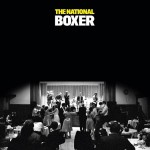 -I understand that most people would rank this as the best album from The National, and this is not surprising. “Fake Empire” is the best builder The National has ever written, and is probably the most dynamic track the group has ever done; it’s certainly their best live song. Each song is well written, and well defined in the polished production. By all means, it’s very consistent. Not only are the majority of the tracks on Boxer complementary of one another, but they stand on their own beautifully. Yet, the album suffers from an anticlimactic ending in the last two tracks. While “Ada” and “Gospel” are good, and might otherwise be exceptional, but without a due emotional release, Boxer feels incomplete. Still, the first ten tracks are all beautifully written and presented, so it makes sense that The National are so renowned for this record.
-I understand that most people would rank this as the best album from The National, and this is not surprising. “Fake Empire” is the best builder The National has ever written, and is probably the most dynamic track the group has ever done; it’s certainly their best live song. Each song is well written, and well defined in the polished production. By all means, it’s very consistent. Not only are the majority of the tracks on Boxer complementary of one another, but they stand on their own beautifully. Yet, the album suffers from an anticlimactic ending in the last two tracks. While “Ada” and “Gospel” are good, and might otherwise be exceptional, but without a due emotional release, Boxer feels incomplete. Still, the first ten tracks are all beautifully written and presented, so it makes sense that The National are so renowned for this record.
Track picks: Mistaken for Strangers, Slow Show, Apartment Story
3. High Violet (2010)
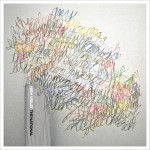 –High Violet is a weird album with which to cultivate a relationship. While the album feels unified, and is wonderfully pristine, getting to the point where one appreciates the strengths of this album depends on the entry points, or the tracks that one is able to latch onto when listening to High Violet. On the surface, that seems like conventional wisdom, and it is. Yet, finding cuts that are gripping or accessible as a means of learning to let the others grow on the listener matters so much for High Violet, because the love matters. This isn’t just a grower where the whole album needs time to incubate before making sense. High Violet is not difficult, or even inaccessible, but the ideas vary widely enough that some will be easier to digest, and learning to love this album takes patience. Yet, when High Violet clicks, when each track feels meaningful, and the journey proves to be a glorious display of what The National can convey, it takes something truly special to top it.
–High Violet is a weird album with which to cultivate a relationship. While the album feels unified, and is wonderfully pristine, getting to the point where one appreciates the strengths of this album depends on the entry points, or the tracks that one is able to latch onto when listening to High Violet. On the surface, that seems like conventional wisdom, and it is. Yet, finding cuts that are gripping or accessible as a means of learning to let the others grow on the listener matters so much for High Violet, because the love matters. This isn’t just a grower where the whole album needs time to incubate before making sense. High Violet is not difficult, or even inaccessible, but the ideas vary widely enough that some will be easier to digest, and learning to love this album takes patience. Yet, when High Violet clicks, when each track feels meaningful, and the journey proves to be a glorious display of what The National can convey, it takes something truly special to top it.
Track picks: Little Faith, Lemonworld, Vanderlyle Crybaby Geeks
2. Trouble Will Find Me (2013)
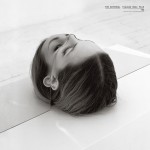 -Full disclosure: I went in wanting to love this album like nothing else. The National is so beloved by me that I could genuinely adore anything they put out, simply by virtue of being a group that has put out so much work that I love. Yet, part of me feared I would be disappointed. Suffice it to say, I was not disappointed. Trouble Will Find Me turned out to not only be a great record, but an emotional juggernaut, the like of which are matched by few other albums I’ve heard ever. Trouble Will Find Me is an insanely heartbreaking manifesto with enough hurt to digest for a lifetime (which seems to be the idea,) complete with references to Morrissey and Nirvana and everything. It’s more focused and deliberate than anything that has come before it, and is able to execute ideas that go as far back as those seen on Sad Songs for Dirty Lovers More than anything, Trouble Will Find Me proves how far The National has come, and that they are bona fide masters.
-Full disclosure: I went in wanting to love this album like nothing else. The National is so beloved by me that I could genuinely adore anything they put out, simply by virtue of being a group that has put out so much work that I love. Yet, part of me feared I would be disappointed. Suffice it to say, I was not disappointed. Trouble Will Find Me turned out to not only be a great record, but an emotional juggernaut, the like of which are matched by few other albums I’ve heard ever. Trouble Will Find Me is an insanely heartbreaking manifesto with enough hurt to digest for a lifetime (which seems to be the idea,) complete with references to Morrissey and Nirvana and everything. It’s more focused and deliberate than anything that has come before it, and is able to execute ideas that go as far back as those seen on Sad Songs for Dirty Lovers More than anything, Trouble Will Find Me proves how far The National has come, and that they are bona fide masters.
Track picks: Sea of Love, This Is the Last Time, Pink Rabbits
1. Alligator (2005)
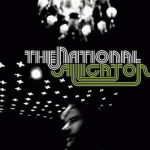 -How could it be anything else? Alligator is the obvious choice. Each song is brilliant, and it flows seamlessly from start to finish. At once focused, but raw and as natural as The National gets, whether Berninger is screaming about being Mr. November, or how he laments for Val Jester, or confidently proclaims that all the wine is his, Alligator is the most sprawling and broadly satisfying album the group has done. No track is out of place, whether they’re abrasive and intense, or whether they’re steady and soft. Successfully explorative, but undoubtedly sure of itself, Alligator is the most exemplary album from a group who already serves as a great model for the kind of artist that is able to demonstrate such impeccable taste, and able to demonstrate it with such precision and focused direction.
-How could it be anything else? Alligator is the obvious choice. Each song is brilliant, and it flows seamlessly from start to finish. At once focused, but raw and as natural as The National gets, whether Berninger is screaming about being Mr. November, or how he laments for Val Jester, or confidently proclaims that all the wine is his, Alligator is the most sprawling and broadly satisfying album the group has done. No track is out of place, whether they’re abrasive and intense, or whether they’re steady and soft. Successfully explorative, but undoubtedly sure of itself, Alligator is the most exemplary album from a group who already serves as a great model for the kind of artist that is able to demonstrate such impeccable taste, and able to demonstrate it with such precision and focused direction.
Track picks: Lit Up, All the Wine, The Geese of Beverly Road
Top Ten Favorite Songs
(Disclaimer: HEAVY Personal bias ahead. . . proceed with caution)
-The National’s sophomore effort is filled with all kinds of strange experiments, and adventurous songwriting. “Cardinal Song” is initially disorienting. It’s a hazy, staggering song lead with Matt Berninger’s vocals and electric piano that shifts and adds layers, subtly peeling and adding layers as the track progresses. Few other tracks the group has attempted are truly as ambitious, let alone as successful. As somber and tired as The National’s best work, yet stark and shimmering, it’s either the best song to fall asleep to, or the best way to start the day.
-I do not use the word “danceable” as a-means of measuring quality, but the fact that “Sea of Love” is able to earn that designation better than any other song by The National. On one level, it shows that The National is willing to have fun, which is not something one normally expects from The National. At the same time, it’s a nice change of pace that something as thoughtful and all-around memorable as “Sea of Love” is so catchy and addictive.
-This, to me,is the most misleading song from The National. It’s simple, it’s upbeat, and it’s got an addictive rhythm. It’s as close to “pop” as pretty much anything The National had done by then, but the lyrics are mildly apocalyptic, and unmistakably agoraphobic. These themes of not embracing the world at large, of making excuses,and of wanting to take others with you, they almost seem like reasonable ideas. But of course, any radical view will aggrandize the negative, including the hermetic promptings that Berninger offers. And yet, it’s impossible not to keep listening, as if there’s something we’re missing that needs a little more time to really make sense as a sensible proposition.
-On one hand, “Beautiful Head” could be the blandest song on this list, but the first half of the track all culminates in a gorgeous and soul-wrenching refrain “Do not tell me you have changed/You’re just raising your standards.” From the beginning of The National, there are flashes of absolute perfection: devastating, disappointed perfection.
-Somehow, The National at their most sedate is often their most compelling. Not a lot is going on in “Lemonworld,” and there’s not a lot of differentiation between the verses and choruses. There’s not even a bridge. That’s how basic this song is. Yet, Berninger’s narrator, and their descent into disillusionment (and possibly alcoholism) is so straightforward, but the cadence and delivery of Berninger’s lachrymose recollections make for a captivating story that has so much value upon repeated listening.
-If there had been a music video for “Slow Show,” it likely would have paid homage to Frank Capra’s It’s a Wonderful Life by depicting someone running down an empty street at night, presumably to make the first act of their one-man show inspired by some otherwise absent muse. Yet, I can’t help but imagine the asphalt would stretch long and wide in the middle of a metropolis, clear for a romance-fueled marathon, but with less snow. “Slow Show” feels contemporary, even though the song was released seven years ago.The themes of desperation and regret built on a desire to be someone else’s reason for laughing, to prove a long-harbored love (expressed in the repurposed refrain of “29 Years,”) also feel universal. Looking forward to the people who make you happy by letting you make them happy is probably the most common aspiration most people have. Yet, such ubiquity is expressed with such specificity, but lands as an absolute bull’s-eye.
-Songs like “Exile Vilify,” “The Rains of Castimere,” and “I Think We Can Wait,” are the sort of songs that are the rewards of being enamored by The National. They’re Easter eggs that are satisfying and interesting, even if it is for the novelty of The National being involved with everything from Portal 2 toGame of Thrones to Bob’s Burgers. Similarly, “About Today” is a special secret for people seriously invested in The National. Yet, “About Today” is what everyone hopes for with finding B-sides or rarities. “About Today” is the blindingly gorgeous diamond in the rough of rejected cuts, and so-so live versions of otherwise great songs. The National might not be a band meant to be played at parties, but they’re hardly making the most intimate music. “About Today” deserves to be shared by no one, and deserves to appreciated in private, lest others misinterpret its especially potent sadness. It’s a song that, as nonsensical as this may sound, belongs to everyone, but should be talked about by no one (and no, the irony and simultaneous hypocrisy of this is not lost on me.)
-This is probably the first song by The National that made me fall in love with them in a meaningful way. Perhaps the orchestral elegance touched my soul, maybe the repeated sentiment “All the very best of us string ourselves up for love” came to me at a difficult time in my life, or maybe it was Matt Berninger’s call for uncompromising escapism (which seems to contradict his sentiments of not being a runaway on the track “Runaway”) but it’s probably all of it gradually striking me at once. It is the grand finale of an already full journey. Yet, it says that there’s so much ground left to cover, and the prospect of a future — one that is so wide open— is not only real, but a reason to look forward to anything at all. The National almost always closes their albums with some kind of optimism, but this is the most blatant and refreshing exercise in believing that all of those setbacks and bad dreams are worth the hardship.
-I have neglected to mention just how brilliant the musicianship of the Dessners and Devendorfs are.”All the Wine” is probably my favorite example of the instrumentalists elevating the quirky and bizarre lyricism of Matt Berninger. As a post-punk song, something about those guitars layered and ringing on top of each other, anchored by a steady rhythm section, glowing at every opportunity they have,is gripping all on its own. “All the Wine” is so meticulous, so much the sum of all its carefully selected parts, that it feels like a real group effort. Also, how could I deny the line “I’m a birthday candle in a circle of black girls?”
-“We’ll take ourselves out in the street/And wear the blood in our cheeks/Like red roses/We’ll go from car to sleeping car/Whisper in their sleeping ear/We were here, we were here/We’ll set off the geese of Beverly Road/Hey love/We’ll get away with it/We’ll run like we’re awesome, totally genius/Hey love/We’ll get away with it/We’ll run like we’re awesome.” Those are my favorite lyrics of any song ever, and they’re framed by a persistent beat, and complementary melodies that are well defined, but never cluttered. Berninger’s words are vivid and lively, and they’re as shamelessly youthful as they are unwilling take responsibility for just how well thought-out Berninger’s aspirations are. The name of the game with “The Geese of Beverly Road” is liberation. It’s a theme that The National doesn’t really explore, but when they decide to indulge in such idealism, they do it with an unassuming approach that drinks in freedom like it’s just happy to have it at all. They have no allusions of abusing or taking their newfound agency for granted. “The Geese of Beverly Road” is approached with the same confidence as the gloomiest, but equally realized as any rumination of theirs, and is unmistakably rich. Yet, even a little less would still be an achievement like nothing else anyone else has accomplished as beautifully as The National has with “The Geese of Beverly Road.” What more could one want?






